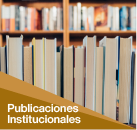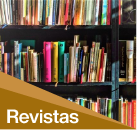La Implementación de la Ronda Vinculada con el Calendario Agrofestivo Aplicada al Inicio del Día en los Estudiantes de Cuatro Años de la I.E.I. N°210 La Cantuta en el Tercer Trimestre del año 2023
Fecha
2025-07-18Autor
Cordova Olivera, Angelaluiza
Nishiyama Saavedra, Ran Aydee
Velasquez Mamani, Mishelin Shaony
Nivel de Acceso
Acceso AbiertoMetadatos
Mostrar el registro completo del ítemResumen
El presente trabajo tuvo como objetivo principal aplicar la ronda de época vinculada al calendario agrofestivo en niños de cuatro años de una institución educativa, en la cual utilizamos diferentes instrumentos así como también planteamos diferentes actividades que permitieron un estudio completo e importante para el fortalecimiento no solo del niño sino también del docente, viendo a las rondas como un momento mágico que motiva el trabajo en equipo mediante la imitación, imaginación, creatividad y movimiento, estableciendo lazos de convivencia, socialización e integración de emociones y sensaciones que esta genera teniendo en cuenta su contexto, ritmo y época en la que se encuentran. Así mismo pretendemos fortalecer su entorno e identidad a través del calendario agrofestivo, el cual permite vivenciar y valorar su cultura, tradiciones y costumbres reflejadas mediante canciones, rimas y versos, es decir, nuestros relatos orales que son esenciales para las rondas de época, siendo esta un reflejo de nuestra cultura. Es importante entender que las rondas de época y el calendario agrofestivo son indispensables para el aprendizaje de los niños, ya que generan momentos de encuentro donde se canta, baila, se realizan movimientos, se trabaja la motricidad, el lenguaje, la memoria y el pensamiento, a través de este movimiento, el canto, la música y la motricidad, se desarrolla a la par el lenguaje, la memoria, la atención y concentración, y por tanto, el pensamiento. Abstract
The main objective of this work was to introduce the “ronda de época” linked to the agro-festive calendar in four year old children of an educational institution, in which we used different instruments as well as we proposed different activities that allowed a complete and important study for the strengthening not only of the child but also of the teacher, seeing the rounds as a magical moment that motivates teamwork through imitation, imagination, creativity and movement, establishing bonds of coexistence, socialization and integration of values, emotions and sensations that this generates taking into account their context, rhythm and time in which they are. The purpose of our research is to link and apply the Waldorf pedagogy and the agro-festive calendar, as well as to revalue the oral tradition, since they are related and complement each other in the education of our children. Likewise, we intend to strengthen their environment and identity through the agro-festive calendar, which allows them to experience and value their culture, traditions and customs reflected through songs, rhymes and verses, that is, our oral stories that are essential for the period rounds, being this a reflection of our culture. It is important to understand that the rounds of time and the agro-festive calendar are indispensable for the learning of children, since they generate moments of encounter where they sing, dance, perform movements, work motor skills, language, memory and thinking, through this movement, singing, music and motor skills, language, memory, attention and concentration, and therefore, thinking, are developed at the same time.
Keywords: Round, agricultural festival calendar, season. Pisiy Rimayllapi
Kay llamkaypa hatun munayninqa karqan riqsichiymi ronda estacional nisqa calendario agrofestival nisqawan tupachisqa tawa watayuq warmakunapi huk institución educativa nisqapi, chaypim hukniray instrumentukunata servichikurqanchik chaynallataqmi hukniray ruwaykunata proponerqunchik, chaymi permitirqa huk estudio completo y importante mana wawallachu kallpachasqa kananpaq, aswanpas yachachiqtapas, muyuta qhawashani warmakunapin rikcharichin huñuypi llankaymanta yachayta yachapukunqu, chaymi sakillan yuyayninkuta hinaspa creativininkuta llankanankupaq, chaymi base de lazos de coexistencianisqa, socialización hinaspa integración de valores nisqakuna churanapaq, contextonkuta, ritmonkuta hinaspa pachaykutapas qawarispa maypichus kashkanku. Proyecto investigacionniykuqa, Waldorf pedagogíawan calendario agrofestivowan periodo rondakunata tinkuchinapaqmi, chaynallataqmi tradición oral nisqatapas musuqmanta chaninchana, chaykunaqa warmanchiqkunapa educacionninpim tupan, chaynallataqmi complementakunku. Chaynallataqmi pachamamankuwan, identidadninkuwanpas tinkuchiy calendario agrofestivo nisqawan, chaymi culturankuta, tradicionninkuta, costumbrenkutapas takikunawan, rimaykunawan hinaspa versiculokunawan musuqmanta chaninchayta atinku, chaykunaqa ancha allinmi periodo rondakunapaq, modelo hina hapispa, chaynapin atispanku sapanjka aspectonkuta culturanchiswan tinkuchina, astawanqa runasimi willakuyninchiskunawan tinkuchispa. Importantin entiendenam, chay muyuypi estacionales nisqapas, calendario agrofestivo nisqapas ancha allinmi warmakunapa yachananpaq, chaymi tupaqkanku momentokunawan, chaypim takinku, tusunku, kuyuykunata ruwanku, llankanku motor nisqapi, simipi, yuyariypi Hinallataq yuyaymanaypi.
Chanin rimaykuna: Muyupi puqllay, chaqra wata Raymi, mit’a.
Colecciones
- Educación Inicial [22]







